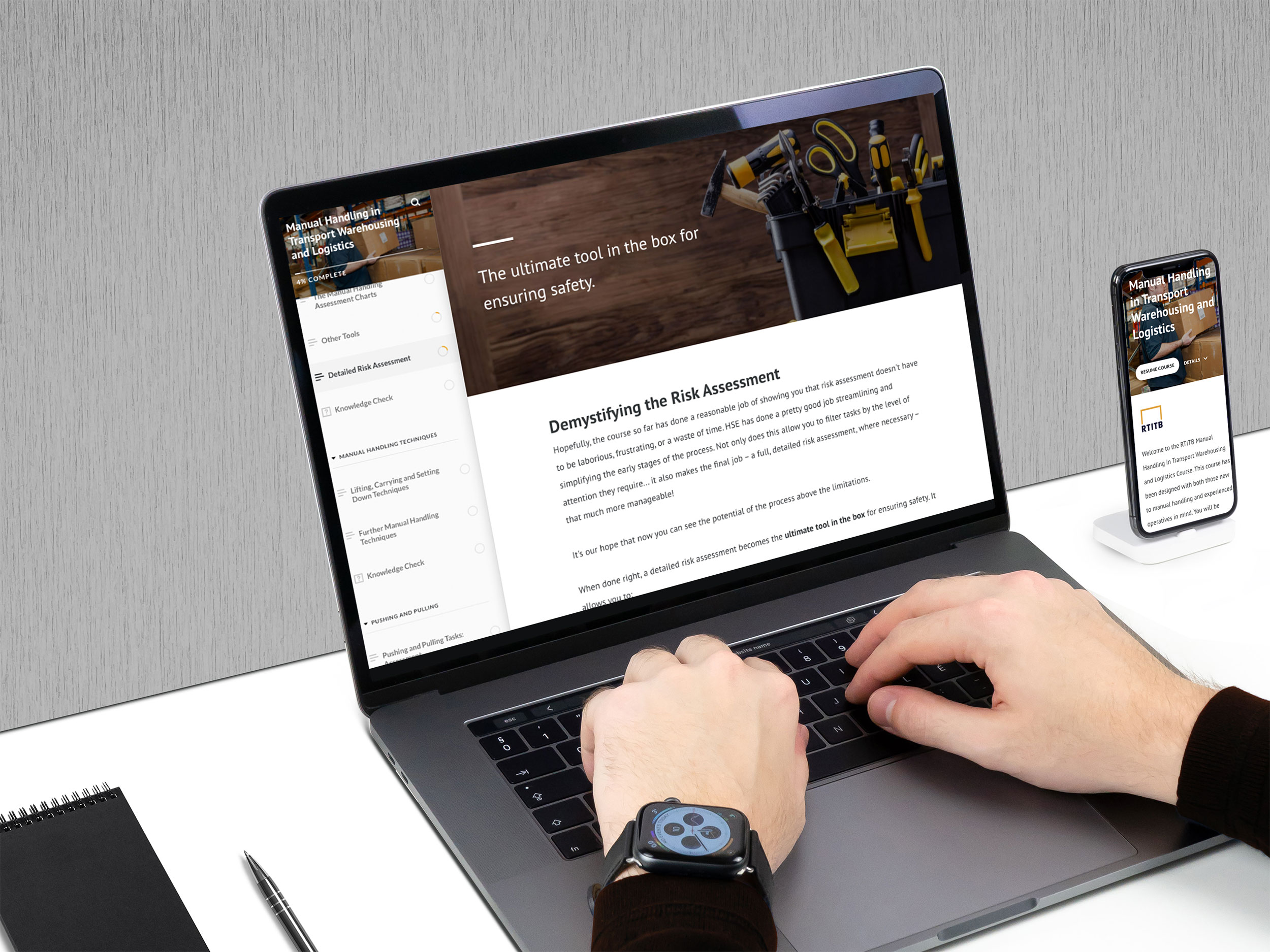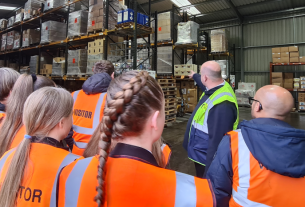Lifting and moving by hand is the main cause of reportable accidents in the ‘freight by road’ industry* and the logistics sector has a rate of musculoskeletal disorders 50% higher than the national average**. To tackle this issue, RTITB has launched a new eLearning course focusing on the sector specific manual handling risks: ‘Manual Handling in Transport, Warehousing & Logistics’.
Manual handling injuries are the second most common injury type suffered in the workplace, and the main cause of musculoskeletal disorders. There were an estimated 23,000 work related cases of musculoskeletal disorders in transport and storage in 2019-20***. According to the Health and Safety Executive (HSE), 480,000 workers suffered from a new or long-standing work-related musculoskeletal disorder in 2019-20, and 152,000 workers suffered from a new case.
“The manual handling injury figures for our industry make for alarming and worrying reading,” says Laura Nelson, Managing Director for RTITB, the UK’s leading workplace transport training accrediting body. “The sad reality is that many employees seem to accept minor injuries or ongoing issues like bad backs as an inevitable part of the job, but they shouldn’t have to. At a time when attracting new people to our industry is more crucial than ever, we need to do everything we can to reduce the risks workers face to make it a more attractive workplace.
“Manual handling injuries are largely avoidable with the right training in place,” says Laura. “Most manual handling courses will not be created with an understanding of what really happens each day in a transport and logistics environment, which is why we have developed the new eLearning with the industry in mind.”
The ‘Manual Handling in Transport, Warehousing and Logistics’ eLearning course is designed for anybody who manually lifts goods or pushes/pulls equipment in the workplace. Via user-friendly, self-paced eLearning, it provides learners with a foundational understanding of the tasks in hand, the associated risks, and the correct handling techniques.
“Other courses tend to focus just on the mechanics of good technique – manual handling training has a reputation for being a day of lifting a box up and down!” explains Laura. “Our new eLearning takes a deeper, more holistic approach to safe manual handling, with the ultimate goal of reducing the risk of incident and injury in the workplace, not just teaching core techniques.”
During the eLearning course, learners are introduced to the musculoskeletal system, the physical impact of poor handling, personal capability, and the thinking behind task assessment, risk identification and risk reduction. All of this is presented in a relevant manual handling context, covering tasks that are encountered typically in supply chain organisations, such as loading and unloading vehicles, or moving trolleys of goods.
Aside from heightened safety, the new eLearning course offers other benefits for the employee and the business. Because the course takes place exclusively online, each individual learner can learn at their own pace, which can help relieve pressure, maintain engagement, and assist with knowledge retention. The training can also be scheduled to fit around the employee’s shift pattern ensuring that businesses do not unnecessarily lose operational time to training.
In addition, online training with RTITB eLearning eliminates the travel time and associated costs and environmental impact of attending in-person training, while also reducing face to face contact for businesses that wish to remain cautious as Covid-19 restrictions ease.
As Laura explains, high quality training for employees is not only in the interest of safety, but also beneficial to businesses to reduce the number of lost working days due to injury. “In 2019-20, HSE statistics show that a staggering 38.8 million working days were lost due to work-related illness and workplace injury, with 8.9 million days lost due to work-related musculoskeletal disorders” she adds. “Investment in manual handling training is an investment in keeping your people safe and your business running productively and profitably.”
Upon successful completion of the eLearning and end of course assessment, candidates will receive a training certificate.





